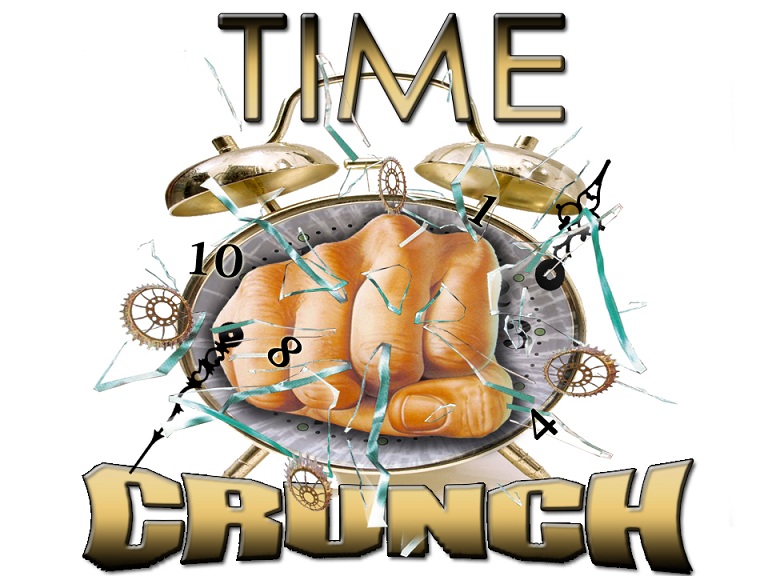
(Source: chaosriftgames.com)
A few months ago, a Polygon opinion article was released called “Why I Worship Crunch”. In it, the author (Walt Williams) talked about his perspective of the concept of crunch time. He says that it gives him a high – that the idea of it is extremely appealing to him.
Many people from the game industry responded in an uproar. They interpreted the article as saying that crunch time is necessary and should be experienced, and responded that it was the opposite and explained how their experiences of crunch can be, and was, damaging to their mental and physical health.
I was inclined to agree with these people. Overworking yourself to the point that your health is affected didn’t seem appealing at all. Yet the response of the community made it seem like a common occurrence for both indie and AAA developers alike.
If crunch is such a bad thing, why does it happen so often?
What IS crunch, anyway?
To put it simply: crunch time is that period of time, usually before the project deadline, where everyone has to double down and work even harder to complete the project on time. Usually, people end up working longer hours in order to be able to gain something tangible. At its extreme, developers may end up with something like 14-hour work days with no weekends (or worse) in order to get the project done.
This isn’t exclusive to the game industry, or even the interactive media industry – any industry can end up crunching to finish their projects on time. The game industry, however, is notorious for it.
How does crunch time affect people and companies?
When crunch time happens, it means a lot of work gets done in a short amount of time. When schedules slip, crunch time can bring it back to speed. Some people may even enjoy crunch time, like Williams, seeing it as a necessary sacrifice to those who are passionate about their work.
But to others, the consequences of crunch time greatly outweigh the benefits. 50% of developers have seen crunch time have a somewhat negative impact on their personal lives, and 28% of developers see it having a very negative impact (Rivera, 2014). According to the latest International Game Developers Association’s (IGDA) developer satisfaction survey, 76% of game developers are working weeks that exceed 40 hours, some even without paid overtime (Takahashi, 2017). While that number is lower than what it was years ago, it’s still too high.
An anonymous user on Livejournal known as “EA_Spouse” wrote a post in 2004 about how perpetual crunch at Electronic Arts greatly affected them when their husband went to work with the company. The gradually increasing crunch without compensation greatly affected their husband, from getting headaches to chronic stomachaches.
Companies also take the hit when it comes to perpetual crunch time. Studies have shown that the most productivity happens during the first four hours of the workday. After that, it gradually diminishes until productivity becomes negative. Working longer hours results in less work getting done throughout a larger period of time, which makes the entire concept financially inefficient (Robinson).
Why does crunch time happen?
The most prominent reason that developers enter a crunch is simply because they’re running out of time, or they’re trying to finish something in such a short amount of time that the only way to do it is to work long weeks. In other words: poor time management. While it’s impossible to predict the actual time or budget frame of a project right from the beginning, it still gives us a basic look at the timeline and how we should work towards the goal at the end. Slipping from that timeline becomes more and more detrimental as development goes on.
Scope creep (adding more features to a current project either during or near the end of development) can be another reason why (Takahashi, 2017). The demands of a client or publisher can force developers to scrap or rework entire pieces of their product, which results in wasted time and budget on features that were shoved in at the last minute.
If perpetual crunch time happens within a company, then the reasons are more serious and can affect every single person in the company: poor management. Good managers are able to take something from almost nothing and make the best of it with the help of their teams. Poor management, however, just drives everyone to the ground and only brings poor results. Developers end up leaving the company to go somewhere else, and those left are trapped in an endless cycle of unethical work conditions.
What can the industry do to minimize the need for crunch time?
In the interactive media industry where many companies are small with few people, it can be tempting to adopt the concept of crunch time into their work culture in order to keep up. However, for the sake of a better well-being for your workers and your product, it’s best to minimize the chance of crunch time.
For starters, analyze the current work conditions of your company. How is the management? The current well-being of the workers? Is everyone working hard with a purpose, or are they grinding simply just to kick the product out the door? After that, consider the ways of how management can improve their planning and managing. Improving management can improve the overall quality of work, well-being, and eventually the result of the product.
Secondly, adopting agile development practices can improve the development of a product. Agile development encourages modular design and work iterations, allowing developers to take a product, break it down into its minimal viable product, and work on that singular chunk before adding more modules. Agile development allows the team to stay focused on their goals without having to overwork themselves to get something done.
Conclusions
The idea of a mentally and physically draining point of time can be detrimental to development – on both the product and the company. It can even be deterring to those who want to become developers themselves.
It’s idealistic to think crunch time can go away entirely, or that it can get better, but as the industry standardizes we can apply ethical and smarter business practices and management to the development of our work. In the end, it’s up to us to make sure that crunch time doesn’t become a necessity, even if it takes years for that to happen.
If you want to learn more, there is an Extra Credits video about crunch and other unethical work practices in the gaming industry, using the development of L.A. Noire as an example. It’s five years old and yet still relevant today.
(Source: Extra Credits, YouTube)
Works cited:
Rivera, J. (2014, February 06). Inside The Video Game Industry’s Culture Of Crunch Time. Retrieved December 16, 2017, from https://www.fastcompany.com/3026161/inside-the-video-game-industrys-culture-of-crunch-time
Robinson, E. Why Crunch Modes Doesn’t Work: Six Lessons. Retrieved December 16, 2017, from http://www.igda.org/?page=crunchsixlessons
Takahashi, D. (2017, February 28). 76% of game developers still labor under crunch conditions. Retrieved December 16, 2017, from https://venturebeat.com/2017/02/28/76-of-game-developers-work-crunch-time-without-paid-overtime/
Advertisements Share this:




